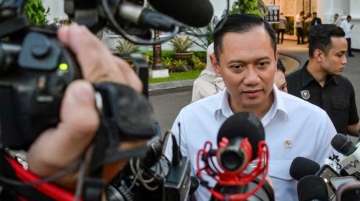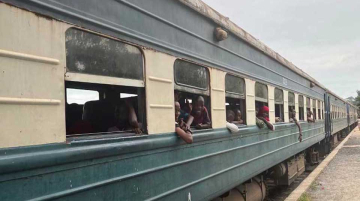
When the Jakarta-Bandung high-speed rail, known as the Whoosh, opened in October 2023, it quickly drew scrutiny. China provided billions in loans, KCIC—the China-Indonesia joint venture operating the line—reported losses, and parent companies like the state-owned PT Kereta Api Indonesia (KAI) absorbed significant deficits. Critics warned of a looming debt crisis and questioned the project’s financial sustainability.
As Indonesia prepares for negotiations with Chinese partners this October over extending the high-speed rail from Jakarta, the capital on the island of Java, to Surabaya, the country’s second-largest city on the eastern end of Java, the situation is more nuanced. The Whoosh faces operational and financial challenges, but it is not simply a “debt trap.” Understanding these complexities is crucial for Indonesia to negotiate effectively and secure long-term benefits.
Since opening, the line has carried millions of passengers, reducing travel time between Jakarta and Bandung, the capital of West Java province about 150 kilometers southeast of Jakarta, from three hours to about 40 minutes. Daily trains carry tens of thousands of passengers, offering a faster and more predictable alternative to road travel.
KCIC has reported losses: the consortium that controls it, PT Pilar Sinergi BUMN Indonesia (PSBI), lost roughly $280 million in 2024 and $107 million in the first half of 2025, with KAI absorbing over $200 million. These figures illustrate the financial demands of the project, but they do not tell the whole story.
The total cost of the Jakarta-Bandung line is $7.22 billion, with about 75% financed through loans from the China Development Bank at competitive interest rates—2 percent on the principal and 3.4 percent on overrun costs.
Within Indonesia’s fiscal framework, these loans are manageable. The country’s sovereign wealth fund, the Nusantara Capital Investment Management Agency (Danantara), provides a mechanism to restructure obligations. The upcoming negotiations are not a bailout; they are an opportunity to clarify operational responsibilities, financing, and planning for the Surabaya extension.
From Speed to Scrutiny: The Whoosh’s Early Record
Construction delays and technical adjustments have added complexity. Some stations opened later than scheduled, signaling systems required modifications, and integration with surrounding urban areas has progressed more slowly than planned.
Ticket revenues have not yet covered all costs—a situation common to high-speed rail projects worldwide. International experience shows that long-term returns come from economic activity generated around stations rather than fares alone.
In Bandung and along the corridor, commercial and residential developments are emerging, and the Surabaya extension could generate similar effects.
Jakarta Sets the Agenda for High-Stakes Rail Talks With China
The October talks should focus on four priorities:
- Operational responsibilities and governance must be clearly defined. KAI will continue to operate the trains, while the state manages stations, signaling, and power. Clear decision-making frameworks reduce disputes and improve efficiency.
- Financing arrangements should be evaluated to ease pressure on KCIC and its parent companies, including adjustments to repayment schedules or terms on overrun costs.
- Indonesia must retain authority over urban and regional development around stations. Decisions regarding housing, business districts, and infrastructure shape long-term economic outcomes.
- Risk-management protocols should address delays, technical issues, and operational challenges.
It is important to recognize that Indonesia can shape the terms of the project: Chinese investment depends on the cooperation of the host country. Beijing has little incentive to enforce conditions that Indonesia cannot or will not accept. By clearly defining its priorities—whether operational, financial, or related to urban development—Indonesia can guide the project while maintaining meaningful control over its execution and outcomes.
China’s role as lender and technical partner does not confer operational or development control. The talks are an opportunity to clarify responsibilities, align expectations, and strengthen governance. Framing the Whoosh as a debt trap oversimplifies the situation and obscures strategic considerations.
Beyond the Balance Sheet: Building Lasting Value Around the Line
High-speed rail improves mobility and can catalyze regional development. Each passenger contributes to economic activity, and station-area development amplifies those effects over time. The Jakarta-Bandung line has already influenced commuting patterns and urban growth, and the Surabaya extension could connect additional economic corridors across Java.
The project also provides opportunities for technical knowledge transfer. Collaboration with China builds experience in constructing, operating, and maintaining high-speed rail, supporting domestic capacity for future infrastructure projects.
Viewed in this context, the Whoosh is a high-cost infrastructure project with operational challenges and financial pressures—but it is not a simple financial trap. Understanding its structure, finances, and potential is essential for the success of the October negotiations.
The upcoming talks offer Indonesia a chance to define operational control, secure sustainable financing, assert authority over development, and formalize risk management. How the government approaches them will shape long-term outcomes for mobility, regional development, and economic integration.
Indonesia’s high-speed rail is complex, with measurable risks and potential long-term benefits. Properly managed, the Whoosh and its Surabaya extension could improve mobility, support regional development, and strengthen economic integration. The upcoming negotiations with China will test how effectively Indonesia exercises control and ensures the project aligns with national priorities.
This article was co-authored by Bhima Yudhistira Adhinegara, Executive Director of the Center of Economic and Law Studies (CELIOS), and Muhammad Zulfikar Rakhmat, Director of the China-Indonesia Desk at CELIOS










